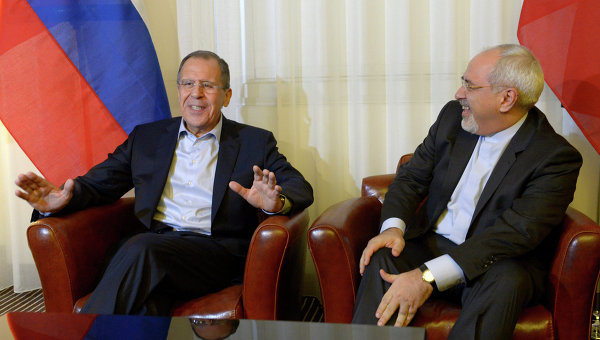by Paul R. Pillar
We should reflect on the meaning of Russia’s use of a base in Iran for staging airstrikes in Syria, and about what lessons we could learn from the Russians. The significance does not have to do with any grand realignment in the Middle East or the emergence of a military alliance between Russia and Iran. Russians and Iranians are not buddies. The development has to do more specifically with the conflict in Syria, and the main advantage for Russia concerns tactical operational considerations involving distances to the battlefield and how much of a bomb load certain types of Russian aircraft can carry.
Nor does the lesson for us involve using more rather than less military force in the region. The United States is conducting airstrikes in Syria, too, and, although it seems to escape our notice sometimes, a limited ground war against ISIS as well. The United States has more of a military presence in the Middle East, and is doing more with that presence, than anything Russia is doing there. If we are worrying about Russia one-upping us in the Middle East, it is not because the Russians are doing more militarily in the region than we are.
The lesson we should draw from the Putin government’s policy in the region is how an outside power is able to pursue its objectives and interests more fully and freely because it is willing to do business with anyone, not limiting itself to business only with states it considers allies and not letting old animosities or current differences get in the way of diplomatic initiatives and practical cooperation. Russia’s approach has been apparent as well in its recent dealings with other non-allies in the region, including Israel and especially Turkey. Russians and Turks aren’t buddies either. Turkish interests, especially economic interests, will continue to point more toward the West than toward Russia. But that reality, the animosities that have underlain multiple Russo-Turkish wars, current differences between Moscow and Ankara that include but are not limited to Syrian issues, and the fact that it is the United States and not Russia that is using an airbase in Turkey have not kept Putin from using rapprochement with the Erdogan government to pursue his own country’s interests.
In practicing such flexible diplomacy, Putin is operating in the realist tradition. In that respect Russia is indeed one-upping the United States, insofar as the United States follows the non-realist habit of perceiving the world as divided into allies and adversaries, limits efforts at cooperation to the former, and sees the latter as fit only for confrontation, punishment, and isolation. Such a non-realist approach is a poor way to protect and advance one’s interests. It means associating too closely with misadventures of purported allies (as, for example, the United States is today in supporting the bloody Saudi-led military intervention in Yemen) and missing opportunities to build on the parallel interests that invariably exist even with those states firmly labeled as adversaries.
The United States probably could have made use of that base in Iran, too, although because of other U.S. military assets in the region it may not need such a staging point as much as Russia did. In any event, there exist other parallel or convergent interests between Iran and the United States, including ones related to the restoration of stability in Syria and Iraq, that the United States could profitably build upon (especially in the wake of completing the agreement to limit Iran’s nuclear program). But any inclinations of the Obama administration to move in this direction are stymied by the strong political resistance within the United States against thinking of Iran as anything other than a target for punishment and isolation. So the United States misses opportunities while Putin, wiser than us in that regard, seizes them.
A wiser United States would also think of Russia itself, which has the label of adversary firmly affixed to it, in realist terms in which that label would not prevent the United States from exploring and exploiting areas of parallel interests. The Obama administration is trying to do some of this regarding military operations against extremist groups in Syria. But again the biggest barrier is the Cold War mindset prevalent in much American politics that mistakenly sees a zero-sum situation in which even any activity of Russia in the Middle East, let alone any discernible Russian gains there, is viewed as a setback for the United States.
This article was first published by the National Interest and was reprinted here with permission. Copyright The National Interest. Photo: Russian Foreign Minister Sergey Lavrov (L) with Iranian Foreign Minister Mohammad Javad Zarif






The most realistic analysis I’ve read on this subject.
Jim Algrant (MCF)
Greater Russian efficiency in attacking the insurgents in Syria, may well be a good thing.